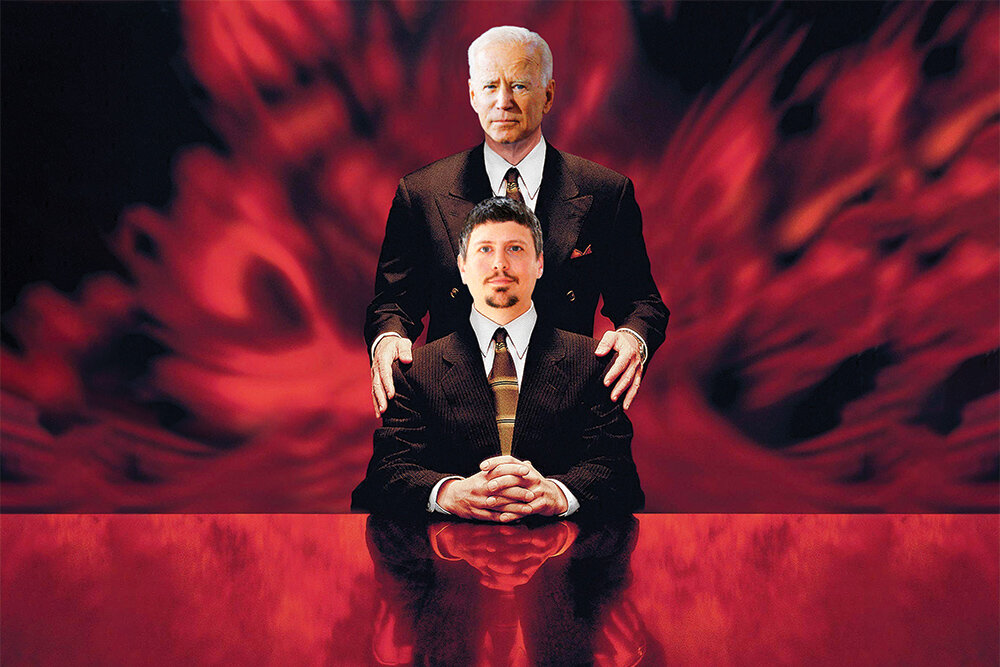Joint Comprehensive Plan of Sanctions

TEHRAN – The White House has taken a range of measures that run counter to Joe Biden’s promises to rekindle diplomacy with Tehran after four years of Trump’s harsh rhetoric against the Islamic Republic.
These measures were the latest indication that the Biden administration is still far from changing tack on Iran. On Monday, it was announced that Richard Nephew, a veteran sanctions expert widely known as the architect of U.S. sanctions against Iran under Barack Obama, joined the Biden administration.
“Brookings experts @lindseywford and @RichardMNephew have joined the Biden administration, as deputy assistant secretary of defense for South and South East Asia, and deputy special envoy for Iran at the Department of State, respectively. Congratulations!” the Brookings Institution said in a tweet on Monday.
Nephew confirmed the news by changing his Twitter bio. “Deputy U.S. Special Envoy for Iran,” his new Twitter bio reads.
The Brookings Institution said in a statement that Nephew was selected to serve as deputy special envoy for Iran at the Department of State.
Nephew has been a nonresident senior fellow in the Arms Control and Non-Proliferation Initiative at the Brookings Institution since 2015. He also was a Senior Research Scholar at the Center on Global Energy Policy at Columbia University SIPA. He joined Columbia University in February 2015. Prior to that, he served as Principal Deputy Coordinator for Sanctions Policy at the Department of State from February 2013 to 2015. In addition, he was a member of the Obama national security team from 2011 to 2013 when he played a pivotal role in expanding U.S. sanctions against Iran, according to Columbia University.
“Nephew also served as the lead sanctions expert for the U.S. team negotiating with Iran. From May 2011 to January 2013 Nephew served as the Director for Iran on the National Security Staff where he was responsible for managing a period of intense expansion of U.S. sanctions on Iran. Earlier in his career, he served in the Bureau of International Security and Nonproliferation at the State Department and in the Office of Nonproliferation and International Security at the Department of Energy,” according to Nephew’s short biography on Columbia University website.
Nephew’s appointment does not bode well for the future of the Iran nuclear deal, formally known as the Joint Comprehensive Plan of Action (JCPOA), simply because he is joining the Biden administration at a time when Iran has placed the priority of lifting sanctions high on its agenda, linking the salvation of the JCPOA to the lifting of the U.S. sanctions on Tehran.
And Nephew, a functionary who perfected “the art of sanctions”, is not going to lift the sanctions. Instead, he will likely turn the JCPOA into a joint comprehensive plan of sanctions. During the Obama administration, Nephew spent much time coordinating and managing Iran sanctions, gaining extensive field experience in implementing sanctions against a number of countries, including Iran.
He outlined his experience in a book titled “The Art of Sanctions,” which serves as a playbook for how to best implement sanctions as a foreign policy tool.
Considering his track record in driving U.S. sanctions policy, Nephew’s appointment set off alarm bells in Tehran, with some Iranians describing this appointment as an indication of “Biden’s maliciousness” against Iran.
“That Richard Nephew, an architect of cruel sanctions against the Iranian nation, is joining the Biden team is another proof that proves Biden and his foreign policy team’s maliciousness. The Americans’ grudge against Iran is not limited to Republicans or Democrats. The only way to confront the economic war of the enemy is to fight corruption and rely on domestic capabilities,” Ahmad Naderi, an Iranian lawmaker, said in a tweet on Tuesday.
Further exacerbating Iranian concerns are the recent remarks of Wally Adeyemo, President Joe Biden’s pick for deputy Treasury secretary.
Adeyemo underlined his commitment to rigorous enforcement of U.S. sanctions against Iran, according to Reuters.
In written responses to queries from members of the Senate Finance Committee, Adeyemo said Iran should only enjoy sanctions relief if it resumes compliance with the JCPOA, Reuters reported. He also vowed that Treasury would look carefully at “any Iranian efforts to evade sanctions and abuse the international banking system.”
These remarks came amid a renewed U.S. push to rachet up diplomatic pressure on Iran by pressuring the International Atomic Energy Agency’s Board of Governors into adopting a resolution against Iran at the current session of the Agency’s board.
Bloomberg reported last week that U.S. diplomats circulated a draft resolution on Thursday which lists Washington’s grievances and orders Iran to fully cooperate with inspectors.
The proposed resolution would “underscore strong concern at the IAEA’s findings” and “express the board’s deepening concern with respect to Iran’s cooperation,” Bloomberg said, adding that this resolution would suggest that Iran could be providing incomplete information on its nuclear activities, something that has potentially serious consequences, including another referral to the United Nations Security Council.
According to a Reuters report, European signatories to the JCPOA – France, Germany and the UK (E3) – are pressing ahead with the U.S. efforts to pass the resolution, despite Russian and Iranian warnings of serious consequences.
Iran has said that the adoption of the resolution will further complicate the situation around the JCPOA and elicit a proper response from Iran.
Regardless of how Iran would respond, the U.S. push for the resolution is yet another sign that it is not interested in diplomacy with Iran. The renewed U.S. pressure on Iran comes after Iran showed its goodwill by striking a deal with the IAEA on how to continue cooperation in light of the start of implementation of a parliamentary nuclear law obligating the Iranian government to stop the implementation of the Additional Protocol to the nuclear Non-Proliferation Treaty (NPT) if the West failed to lift the sanctions.
Comments